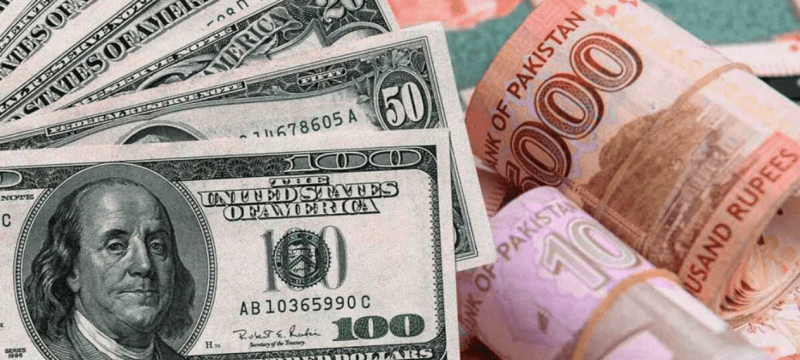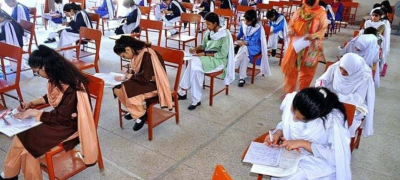PKR Surges as Crackdown on the Dollar Galore in Grey Market Takes Effect
In a significant turn of events, Pakistan’s retail dollar market, often associated with the “grey market,” is undergoing a transformation as authorities intensify their crackdown on illicit dollar transactions. This crackdown has had a profound impact on the exchange rate landscape, with notable consequences for the country’s economy.
As the illicit black market for dollars seemingly “disappears,” the retail dollar rate has witnessed a sharp decline, causing the gap between the interbank and retail rates to narrow significantly, well within the International Monetary Fund-mandated 1.25 percent band.
The recent crackdown follows a series of high-level meetings between Pakistan’s army chief and business leaders in Karachi and Lahore. During these discussions, promises were made to address the escalating issue of illegal dollar trading and its adverse effects on the nation’s exchange rate.
Read more:Foreign Minister Jilani Affirms No Plans for Recognition of Israel
The crackdown was swiftly initiated by the Federal Investigation Agency (FIA), which conducted raids on exchange companies across the country, focusing on cities like Peshawar, Karachi, Lahore, and Islamabad. These operations resulted in the closure of numerous shops and the apprehension of several individuals involved in unlawful transactions.
These stringent administrative measures have helped alleviate pressure on the key interbank market, leading to the State Bank of Pakistan (SBP) maintaining its policy rate at 22 percent in its most recent monetary policy statement.
However, while the crackdown has brought stability to the exchange rate, the country continues to face economic challenges, including soaring food and energy inflation and critically low foreign reserves. The crackdown has led to an increase in remittances, with expectations that these vital inflows could reach approximately $2.5 billion in September.
Nonetheless, administrative actions alone cannot fully address Pakistan’s economic issues. The country’s policymakers must also tackle long-standing structural issues contributing to the proliferation of hawala/hundi operators in the currency market
One of the key contributors to the depletion of foreign reserves is the significant demand for dollars by large importers and traders engaged in under-invoicing their imports to evade taxes. This demand surged when the SBP allowed importers to arrange dollars for imports, bypassing import restrictions, and turning to the grey market to acquire dollars at substantial premiums.
Moreover, payments for smuggled Iranian oil and gold, both prohibited for commercial import, are facilitated through Dubai-based hawala/hundi operators. The impact of such smuggling is estimated to be around $5 billion on remittances originating from Middle Eastern countries, diverting these funds away from formal, documented banking channels.
Similarly, a significant amount of dollars is funneled out of Pakistan through the hawala/hundi system to under-invoice imports from China, exacerbating the pressure on the national currency. Additionally, the illicit outflow of dollars to Afghanistan is a pressing concern, with unofficial estimates suggesting that it could be twice the officially acknowledged amount, putting the stability of the Pakistani currency at risk.
Addressing these issues is vital to strengthen Pakistan’s anti-money laundering efforts and enhance the integrity of its financial system. Policymakers are urged to implement a combination of policy, regulatory, and administrative measures to prevent the conversion of “dirty money” into high-value assets such as real estate and gold. Implementing a proof of funds requirement at ports for clearing import shipments and enforcing stringent regulatory measures are seen as critical steps in this endeavor.
Banks are also called upon to play a frontline role in combating illicit money transfer networks, with non-compliant clients facing the termination of their bank accounts. Strengthened regulatory oversight and international cooperation are key elements in effectively dismantling these networks and ensuring that Pakistan’s financial system remains secure and transparent.





